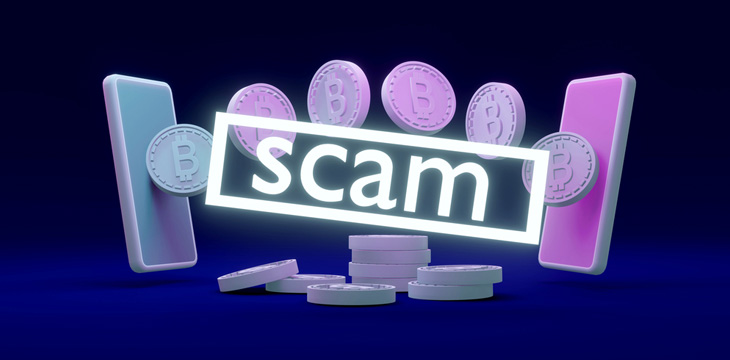|
Getting your Trinity Audio player ready...
|
Digital asset fraud has risen by almost a third in the past year, according to statistics obtained from the U.K. police by the Financial Times.
The numbers come via a freedom of information request to Action Fraud, the U.K. police’s anti-fraud unit. They show that financial losses relating to digital assets that were reported to Action Fraud between October 2021 and September 2022 jumped to £226 million ($273 million), up 32% on the previous period. The increase is well more than that reported for general fraud, which is reported as rising 8% in 2021 (albeit for the period ending 2021).
Illustratively, a £33 million ($40 million) chunk of the latest increase came in May alone, the same month that saw the collapse of Terra.
Given the tumult in the digital asset industry in 2022, the large jump is unsurprising. The Terra collapse itself set off a chain reaction that also killed off Three Arrows Capital (3AC) and imperiled many other companies unfortunate enough to be financially tied to it. 3AC owed $3.5 billion when it went bankrupt, which felt like an outlier at the time but would be followed up months later with the collapse of FTX, another exchange, which at last count, owed at least $3.1 billion and likely much more. The industry is still waiting with bated breath to see which might be the next domino to fall.
Amidst all this, digital asset prices have fallen more or less across the board, further sharpening conditions for fraud and theft.
That 2022 should see such a dramatic rise is significant. The various limbs and appendages of the U.K. government have paid increasing attention to the digital asset industry over the past two years, and some of these initiatives are only now beginning to bear fruit—but they come at a time when the shadowy side of the industry is thrust onto the front page of mainstream media practically every week.
Chief among these is the Financial Service and Markets Bill currently making its way through Parliament. The Bill is intended to overhaul the U.K.’s framework for financial regulation and, in particular, would bring digital assets and service providers, such as exchanges, within the oversight of the Financial Conduct Authority (FCA), the country’s financial regulator.
That Bill is still undergoing revision, including proposed amendments from October, which would outlaw the promotion of digital asset products and services in the U.K. without a license. Even assuming that the recent FTX chaos doesn’t influence further amendments, such events seem certain to weigh heavy on the mind of the FCA, which will ultimately be in charge of regulating the industry under the proposed law. The FCA has already taken a cautious approach to digital assets in the U.K., refusing licenses to the likes of FTX and Binance and issuing warnings to investors over both entities in the past 24 months.
In the same vein, the deputy governor for the Bank of England confirmed that the central bank is looking into issuing a digital pound. His comments were steeped in the unfolding FTX collapse and the effect it’s had on the wider digital asset markets, noting that the infrastructural companies at the center of the industry “exist in largely unregulated space and are very prone to the risks that regulation in the conventional financial sector is designed to avoid.”
While the dramatic increase in digital asset fraud is leaving many looking to new rules that might prevent such occurrences, it will also inevitably raise questions over what mechanisms exist to recover stolen assets. Authorities are getting better at finding and seizing illicit assets, such as those hidden away in exchange wallets or hard wallets. Still, these methods are imperfect and out of step with the abilities of blockchain and Bitcoin technology. Bitcoin itself was designed to allow on-chain assets to be frozen and reassigned, and this feature is being reintroduced to Bitcoin via the Digital Asset Recovery mechanism.
There are almost certainly more FTX-style blowups and devastated investors to come, but at least we’re approaching an era where something can be done about it. Between freshly motivated lawmakers and the availability of the tools required to freeze and recover stolen or lost assets, better days are ahead.
Watch: The BSV Global Blockchain Convention panel, The Future World with Blockchain
Recommended for you
British lawmakers of the parliamentary national security committee have called for a temporary ban on political parties receiving donations in
Circle (NASDAQ: CRCL) soared in 2025 thanks to U.S. ‘regulatory clarity,’ but can this momentum survive a ban on crypto

 02-26-2026
02-26-2026 




